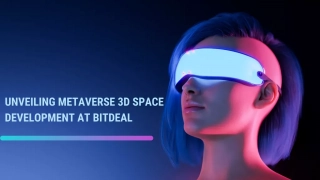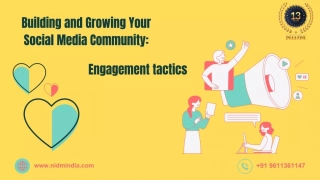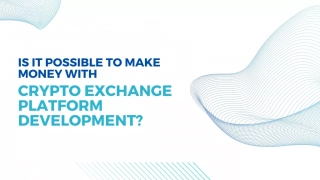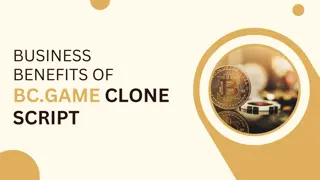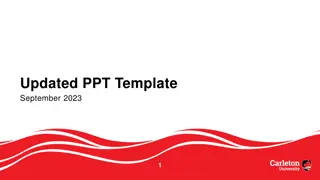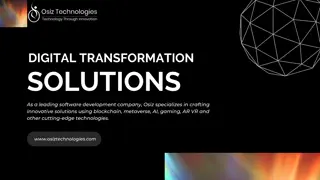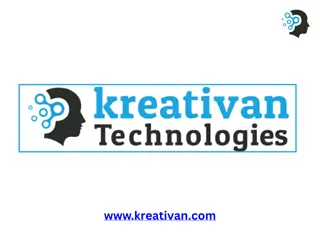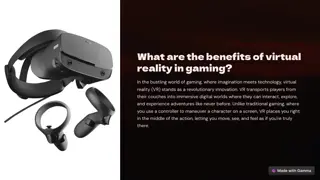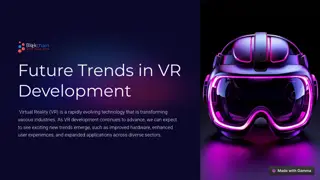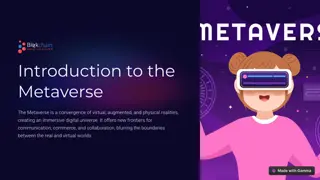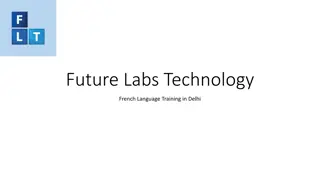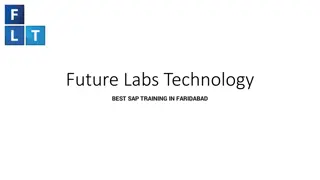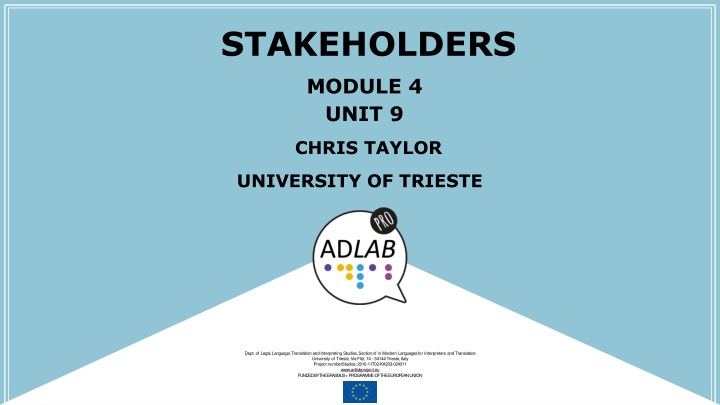
Stakeholders: Key Elements and Examples in Modern Organizations
Discover the concept of stakeholders in organizations, their impact and involvement in decision-making processes, and explore key examples from various sectors such as museums, universities, and service providers. Stakeholders play a vital role in shaping organizational policies and actions.
Download Presentation

Please find below an Image/Link to download the presentation.
The content on the website is provided AS IS for your information and personal use only. It may not be sold, licensed, or shared on other websites without obtaining consent from the author. If you encounter any issues during the download, it is possible that the publisher has removed the file from their server.
You are allowed to download the files provided on this website for personal or commercial use, subject to the condition that they are used lawfully. All files are the property of their respective owners.
The content on the website is provided AS IS for your information and personal use only. It may not be sold, licensed, or shared on other websites without obtaining consent from the author.
E N D
Presentation Transcript
STAKEHOLDERS MODULE 4 UNIT 9 CHRIS TAYLOR UNIVERSITY OF TRIESTE Dept. of Legal, Language, Translation and Interpreting Studies, Section of in Modern Languages for Interpreters and Translators University of Trieste, Via Filzi, 14 - 34144 Trieste,Italy Project numberStudies: 2016-1-IT02-KA203-024311 www.adlabproject.eu FUNDED BY THE ERASMUS + PROGRAMME OF THE EUROPEANUNION
WHAT ARE STAKEHOLDERS A person, group or organization that has interest or concern in an organization.
AND Stakeholders can affect or be affected by the organization's actions, objectives and policies.
WH0 ARE STAKEHOLDERS Some examples of key stakeholders in general are employees, government (and its agencies), project organisers, businesses, local special interest associations, .
MUSEUM AD STAKEHOLDERS Museum curators/directors/boards; Museum audio describers; PSL and PSL associations;
MUSEUM AD STAKEHOLDERS University researchers, etc.; Service providers e.g., Vocal Eyes in London for museum AD.
MUSEUM CURATORS/DIRECTORS/BOARDS These are the people who commission or request (and often pay for) audio descriptions.
AD SERVICE PROVIDERS AD service providers for museums may be private companies, media bodies, freelance individuals, project organisers, etc. and it is they who provide the personnel and the product.
AUDIO DESCRIBERS Clearly the audio describer him or herself is a key stakeholder in the process of providing access for PSL.
AUDIO DESCRIBING TEAM It would be more accurate in fact to speak of an audio describing team (describer(s), voice talent, sound engineer, feedback providers, etc.).
PSL The end user is generally the person with sight loss. This stakeholder is the focus of the whole process and his or her feedback is essential to that process.
PSL ASSOCIATIONS These stakeholders can be very effective in promoting AD, or at times not even know of its existence. Promotional initiatives are needed in these cases.
GOVERNMENT At local, national and European level, governments can be active or passive stakeholders. In any case, they often need to be lobbied, especially as regards finance.
UNIVERSITIES As centres of research, universities have a vested interest in pursuing new research goals and introducing new courses to attract students.
OTHER USERS As museums are made accessible to all, other AD users may find the service helpful.
STAKEHOLDER CONFLUENCE An ideal situation for static arts audio description would be a meeting of minds involving all stakeholders in agreement as to best practices and efficient networking.
STAKEHOLDERS MODULE 4 UNIT 9 CHRIS TAYLOR UNIVERSITY OF TRIESTE Dept. of Legal, Language, Translation and Interpreting Studies, Section of in Modern Languages for Interpreters and Translators University of Trieste, Via Filzi, 14 - 34144 Trieste,Italy Project numberStudies: 2016-1-IT02-KA203-024311 www.adlabproject.eu FUNDED BY THE ERASMUS + PROGRAMME OF THE EUROPEANUNION
The preparation of this presentation was supported by ADLAB PRO (Audio Description: A Laboratory for the Development of a New Professional Profile), financed by the European Union under the Erasmus+ Programme, Key Action 2 Strategic Partnerships, Project number:2016-1-IT02-KA203-024311.
The information and views set out in this presentation are those of the authors and do not necessarily reflect the official opinion of the European Union. Neither the European Union institutions and bodies nor any person acting on their behalf may be held responsible for the use which may be made of the information contained therein.



